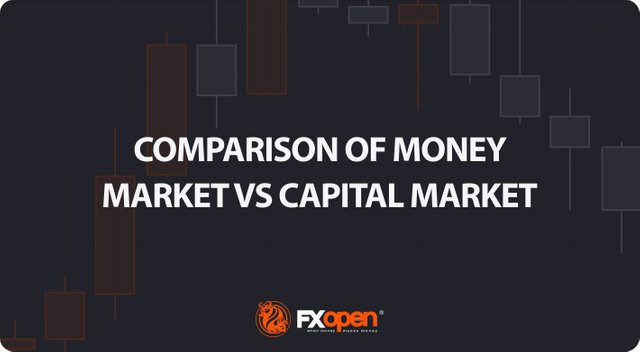
Navigating the financial world requires a clear understanding of its various facets, especially when comparing the money market vs the capital market. These two pivotal markets serve distinct roles in the economy, catering to different investment horizons and risk profiles. This article aims to demystify these markets, providing insights into their characteristics, differences, and the importance they hold for traders and investors alike.
What Is the Money Market?
The money market involves trading short-term financial instruments. It’s characterised by high liquidity and low risk, making it a popular choice when it comes to managing short-term financial needs and cash reserves.
Instruments traded here include Treasury bills (T-bills), which are government-issued securities with maturities of less than one year. Commercial paper, another common instrument, is an unsecured, short-term debt issued by corporations to finance their immediate operational needs. Additionally, certificates of deposit (CDs) issued by banks offer fixed interest rates for short-term deposits.
These instruments collectively may provide a safe haven when investors seek stability and quick access to their funds, with minimal exposure to price fluctuations.
What Is the Capital Market?
The capital market is a financial marketplace where long-term debt and equity-based securities are traded. It's essential for raising capital and serves as a key platform for long-term investment and wealth generation.
It includes stocks, representing ownership shares in companies, and bonds, which are debt securities issued by entities like governments and corporations. Stocks offer potentially higher returns but come with greater risk, while bonds provide a more stable income stream but usually with lower returns.
This market plays a crucial role in the economy by enabling capital formation and investment in productive ventures, driving economic growth. It attracts investors seeking opportunities to invest in the future growth of companies, infrastructure projects, and governmental initiatives, offering a range of options from high-risk, high-reward stocks to more conservative bonds.
To read full stories visit FXOpen blog